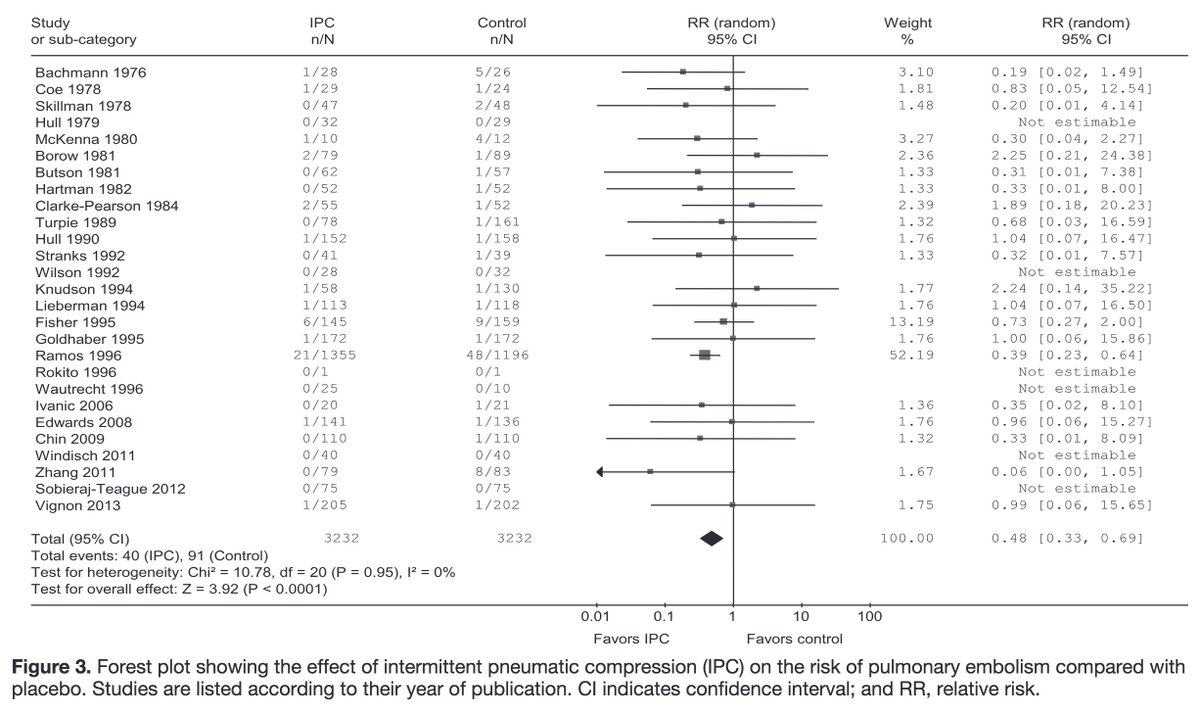Why is "Prescribing Docusate for Constipation in Hospitalized Adults" a #TWDFNR?
This thread is a complement to the recently published review of the same name, appearing in February 2019 issue of @JHospMedicine
journalofhospitalmedicine.com/jhospmed/artic…
Before discussing the review by Robert Fakheri and Frank Volpicelli, let's gauge current practice.
How do you currently use docusate in hospitalized adults with constipation?
If you use docusate, you're not alone.
One single-center study found that docusate accounted for 64% of laxative doses. The cost: $60,000/year.
ncbi.nlm.nih.gov/pubmed/27323235
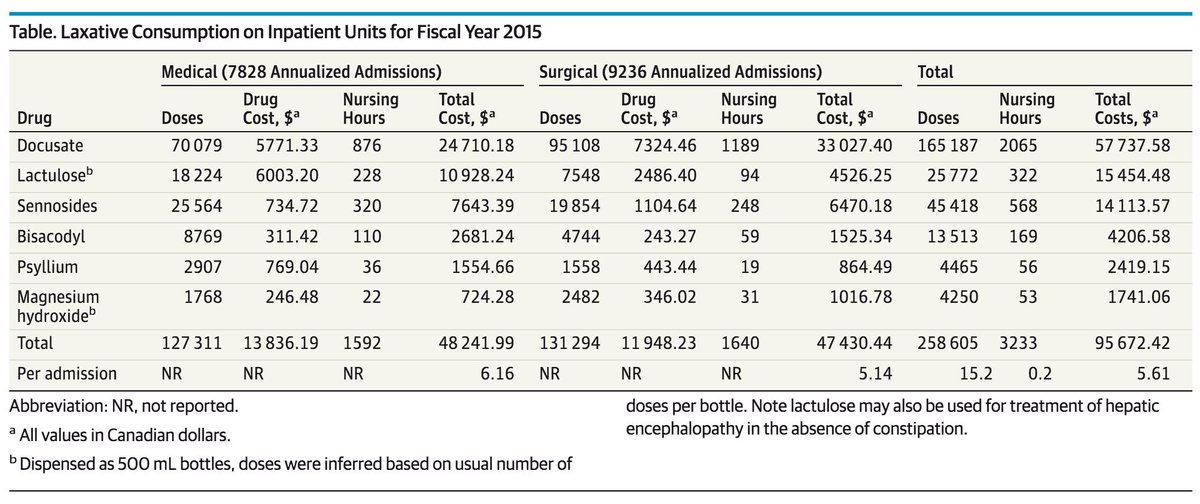
How did we get here?
Early data suggested docusate my work. One study, from 1957, gave 16 patients with atonic constipation a placebo. They didn't respond.
They then gave these patients plus another 19 docusate. 51% had an "excellent response."
ncbi.nlm.nih.gov/pubmed/13458167
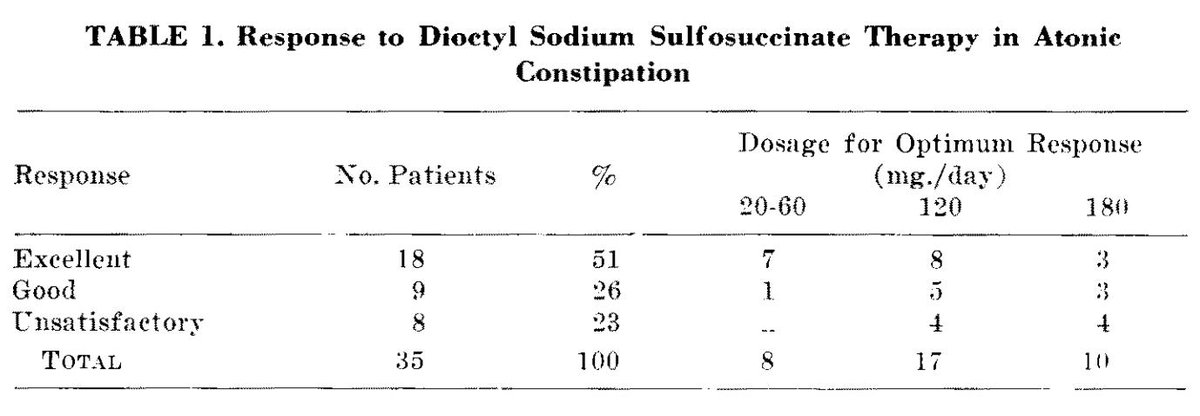
But, despite early promise, subsequent studies failed to consistently demonstrate any benefit.
The largest placebo-controlled study enrolled just 74 hospice patients and found no benefit with docusate added to sennosides.
ncbi.nlm.nih.gov/pubmed/22889861
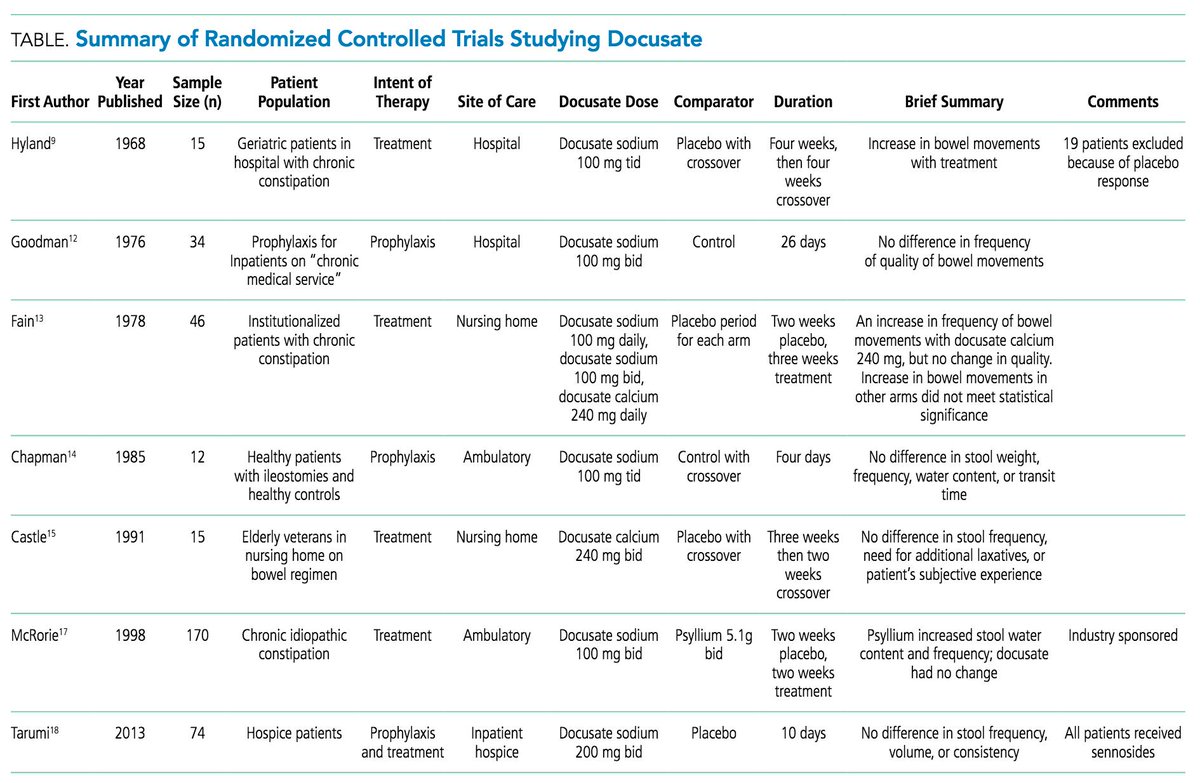
The studies are heterogeneous, small, and generally low quality. Result: meta-analyses have been difficult to perform.
This is remarkable given how commonly we use docusate.
In light of the paucity of proven benefit, any harms make the risk/benefit ratio favor not using docusate.
As the authors of the #TWDFNR review note, there are both patient and system-level harms.
Here are their recommendations.
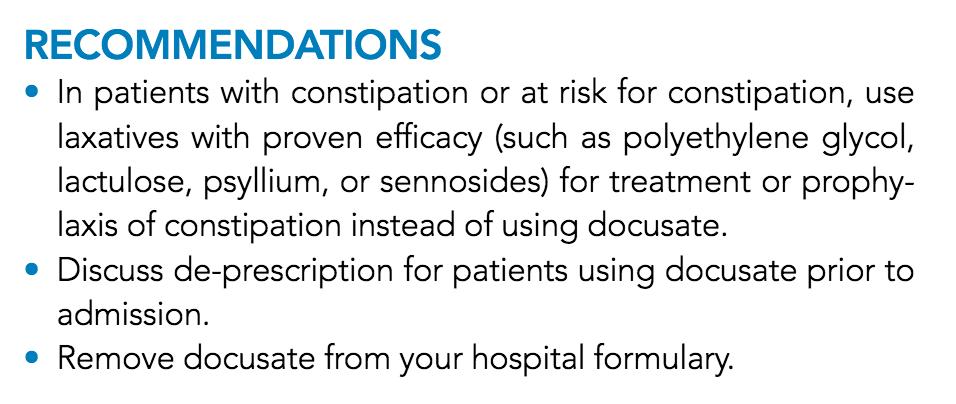
What do you think? Are you going to change your practice?
This thread only covers parts of the arguments made by Fakheri and Volpicelli in their review.
To read more, download their paper published this month in @JHospMedicine
journalofhospitalmedicine.com/jhospmed/artic…

